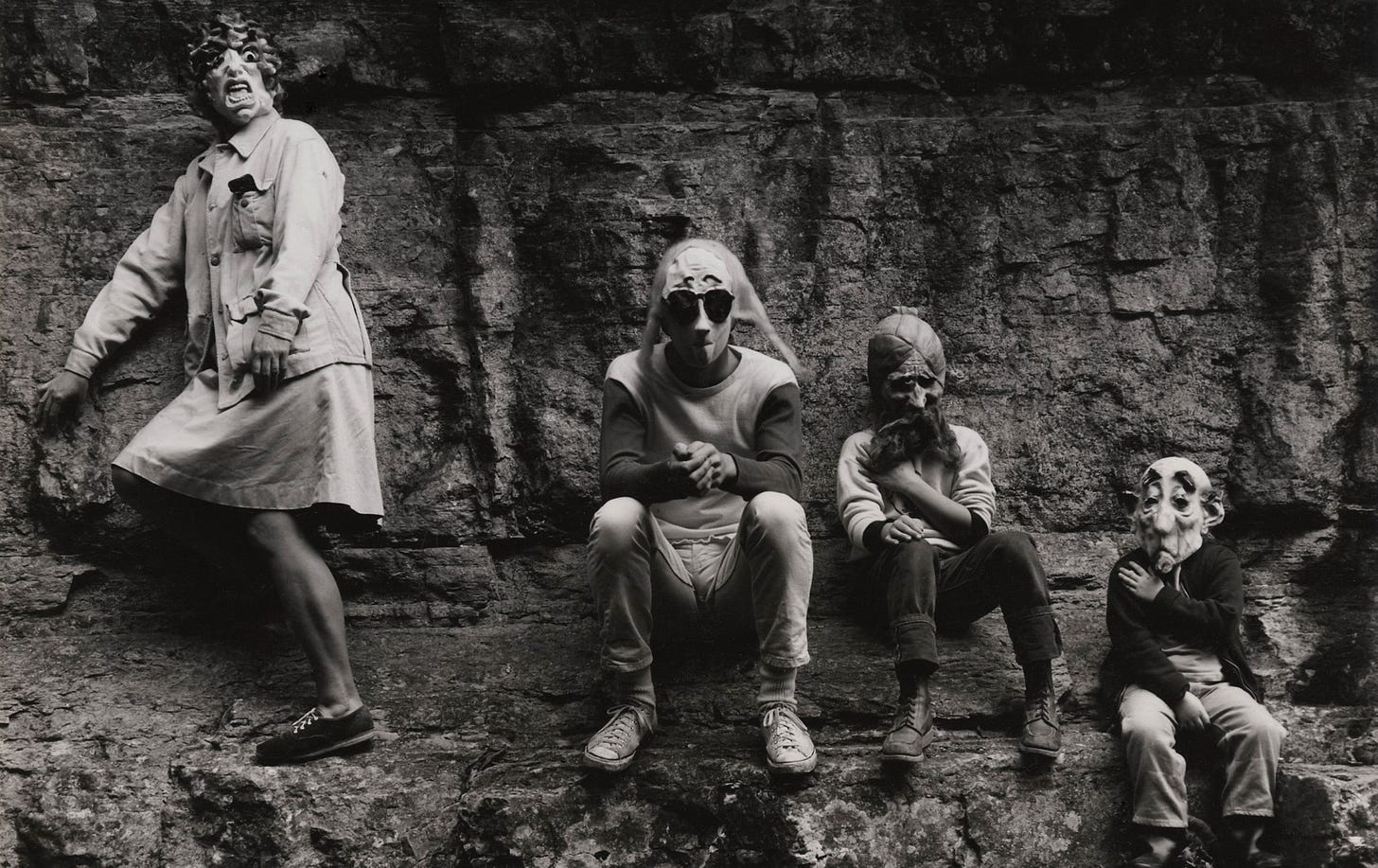How to Defeat a Monster
Courage and learning to fear the right things | The Word in the Wild, Proper 7, Year B
For those new to The Way We Practice, welcome. Most weeks I offer a reflection on one or more of the scriptures that will be read on Sunday in those churches following the Revised Common Lectionary. For those in churches or traditions that do not follow the lectionary, I hope these reflections will still be a helpful way of engaging with the sacred texts of scripture.
And a reminder: My new book, The Art of Being a Creature, is available for a 40% discount through the end of June. Order the book at Wipf & Stock and use the code SOIL at checkout.
There are monsters in the depths and beyond the borders. We know them from our fairy-tales and myths, we encounter them in our dreams. Often they slumber, our awareness dulled to their presence, until we stir them and their menace meets us with a wakeful fear. They can take different forms—dragons, Leviathan, giants. Whatever the shape, monsters embody a threat to the life of peace, the fullness of flourishing. The question is: how will we meet them when they come?
In the small community built along the banks of the Jordan river, at the intersection of empires, the monstrous came in two forms: armies and oceans. Armies were a tangible, everyday kind of threat, but at times they can take on a mythic aspect. Look at the way war is exercised, even today, and you often find a cult of death emerges, an attempt to live into the monstrous reality of the violence. I remember reading in Chris Hedges book, War is a Force That Gives Us Meaning, that Hedges encountered warlords in the Balkans that decorated their cars with human skulls. The fearful vision of Apocalypse Now or the Mad Max movies shows an impulse at the heart of war that is only quelled by the most forceful suppression by organized armies (where still the monstrous hides in subtler forms).
In the book of Samuel, the threat of invasion is embodied by a different kind of monster—Goliath, the giant. The Philistines lived on the coast to the west of Israel (a territory including modern Gaza). And like most ancient kingdoms, they were seeking new territory, expanded lands. So they were pushing east, an incursion that was met by the newly crowned king—Saul. Army camped against army and a challenge was issued for a way out of the standoff. A contest of champions was a common way of settling a battle in the ancient world, the best soldiers of each side fighting to settle the whole conflict. Goliath issues such a challenge, but Israel had no one to meet him.
Monsters grow in the mind more quickly than they do in body. A threat, a fear, gets magnified under the lens of our anxiety. We turn with fascination toward the beast and notice its power, its impossible force. Samuel goes on at length about Goliath’s height, his armor, the weight of his spear. We can feel some of the terror that Saul must have felt, the anxiety of Israel. How to meet such a monster?
It was night on the Sea of Galilee. From its embodiment in the Leviathan to the mythic war of YHWH with “Rahab of the deep,” the waters of the sea and ocean were a chaotic threat to Israel. As with other indigenous peoples, ancient Israel did not understand these waters to be mechanical forces. Instead, like the landscape itself, the sea was a person—a creature with a kind of animus, a “spirit.” As with hills that give praise or trees that clap their hands, Israel understood the sea to be a personal power that was often threatening, even monstrous. As Mari Joerstadt writes in her excellent study, The Hebrew Bible and Environmental Ethics, “If viewed as persons, rather than mechanical forces, it takes no great leap of imagination to understand why writers of the Hebrew Bible portray bodies of water as combative and threatening.”
That night on the sea, the monstrous waters rose up and the tiny boat was dwarfed by roiling waves. The long feared chaos that the sea embodied had come to life and it was threatening to end the new messianic movement with a drowning. And through it, Jesus slept.
To sleep requires security, a sense that no monsters lurk nearby. Children’s beds and closets must be checked, and adults turn deadbolts, set alarms, put phones or weapons within reach. Only then can sleep come. Jesus, even rocked by the wild winds and crashing waves, slept secure. Why?


